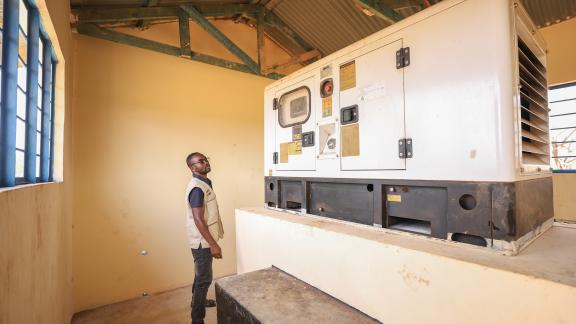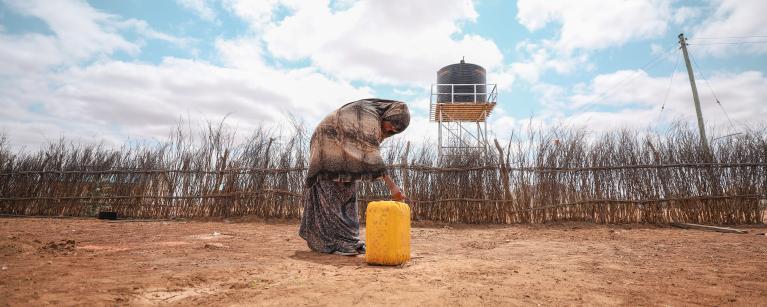Where the earth had grown hard and thirsty. Days were marked by the relentless sun and the harsh reality of a land gripped by one of the longest, most unforgiving droughts East Africa had ever seen.
25-year old Amina, would walk long distances to fetch water at the dam during the drought. Those who had means would pay to have water delivered to them either in donkey carts or motorbikes.
After four years, the rains fell. What should have been a blessing, turned
catastrophic. The rains were heavy and Buna flooded. The floodwater contaminated water sources and there was an outbreak of cholera.
Water from the dam was untreated but it was available.
“We were happy when the rains fell, we just did not know that it came withmore disaster. The dam was contaminated and people feel ill from cholera.Many were hospitalized.”
Oxfam in partnership with Wajir South Development Association (WASDA),
under the ASAL Humanitarian Network (AHN), with the generous funding from the Swedish Government (SIDA), rehabilitated the genset housing making it flood-proof to ensure clean and reliable water supply. This has seen 1400 households access safe water as a result of the
rehabilitation works.

The genset housing constructed by Oxfam and partner Wajir South Development Association (WASDA) in Buna, Wajir County. Image credit: Mark Wahwai.
They have also distributed WASH Non-Food Items such as soap, water storage containers and water purifiers to community members, reaching 755 households with 4432 persons in Wajir County.
“We received aqua tabs for purifying water. Using this means that we can have clean water for drinking and cooking.”
Amina was also trained on proper hygiene practices such as handwashing to ensure they steer clear from water-borne diseases. Amina now has water at her doorstep.
The very ground that had withheld its bounty for so long now yielded a different promise. Water at her doorstep means not having to trek far distances to fetch water and having easy access whenever she needs it.
